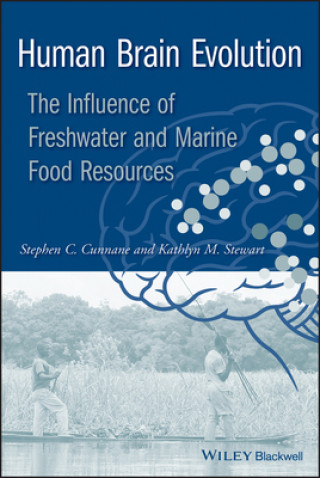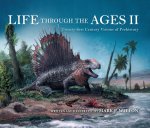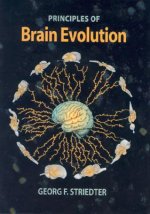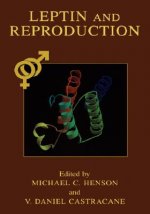
Kód: 01388346
Human Brain Evolution
Autor Stephen Cunnane, Kathlyn Stewart
The evolution of the human brain and cognitive ability is one of the central themes of physical/biological anthropology. This book discusses the emergence of human cognition at a conceptual level, describing it as a process of lon ... celý popis
- Jazyk:
 Angličtina
Angličtina - Vazba: Pevná
- Počet stran: 232
Nakladatelství: John Wiley & Sons Inc, 2010
- Více informací o knize

5336 Kč
Dostupnost:
50 % šance Máme informaci, že by titul mohl být dostupný. Na základě vaší objednávky se ho pokusíme do 6 týdnů zajistit.
Máme informaci, že by titul mohl být dostupný. Na základě vaší objednávky se ho pokusíme do 6 týdnů zajistit.Prohledáme celý svět
Mohlo by se vám také líbit
-

Transforming IT Culture - How to Use Social Intelligence, Human Factors, and Collaboration to Create an IT Department That Outperforms
1148 Kč -

Paleoecology - Past, Present and Future
4696 Kč -

Life through the Ages II
614 Kč -

Brain Evolution
6017 Kč -

Paleontology
687 Kč -

Scenes from Prehistoric Life
677 Kč -

Evolution of Brain and Behavior in Vertebrates
1339 Kč -

Best Small Penis Sex Techniques: Call-girls' Guide to Amazing Sex
435 Kč -

Jim Henson's The Dark Crystal: Creation Myths Vol. 3
343 Kč -

Soul Surfer
312 Kč -

Encyclopedia of Paleontology
17760 Kč -

Taming of the Shrew
374 Kč -

Racial Profiling in Canada
2973 Kč -

Leptin and Reproduction
5094 Kč -

Aerosol Inhalation: Recent Research Frontiers
5094 Kč -

Handbook of Word-Formation
6578 Kč -

Horizontal Effect Revolution and the Question of Sovereignty
4803 Kč -

Das Lebensgefüge der Musik 1. Grundgestalt, Bewegung, Stufung
269 Kč -

Arma parata fero! Ein soziales Gedicht
645 Kč -

BMW 3er-Reihe
324 Kč -

LA VALUTAZIONE DELLE COMPETENZE LUNGUISTICO-COMMUNICATIVE IN ITALIANO L2
262 Kč
Dárkový poukaz: Radost zaručena
- Darujte poukaz v libovolné hodnotě a my se postaráme o zbytek.
- Poukaz se vztahuje na celou naši nabídku.
- Elektronický poukaz vytisknete z e-mailu a můžete ihned darovat.
- Platnost poukazu je 12 měsíců od data vystavení.
Informovat o naskladnění knihy
Zadejte do formuláře e-mailovou adresu a jakmile knihu naskladníme, zašleme vám o tom zprávu. Pohlídáme vše za vás.
Více informací o knize Human Brain Evolution
Nákupem získáte 534 bodů
 Anotace knihy
Anotace knihy
The evolution of the human brain and cognitive ability is one of the central themes of physical/biological anthropology. This book discusses the emergence of human cognition at a conceptual level, describing it as a process of long adaptive stasis interrupted by short periods of cognitive advance. These advances were not linear and directed, but were acquired indirectly as part of changing human behaviors, in other words through the process of exaptation (acquisition of a function for which it was not originally selected). Based on studies of the modem human brain, certain prerequisites were needed for the development of the early brain and associated cognitive advances. This book documents the energy and nutrient constraints of the modern brain, highlighting the significant role of long-chain polyunsaturated fatty acids (LC-PUFA) in brain development and maintenance. Crawford provides further emphasis for the role of essential fatty acids, in particular DHA, in brain development, by discussing the evolution of the eye and neural systems.§This is an ideal book for Graduate students, post docs, research scientists in Physical/Biological Anthropology, Human Biology, Archaeology, Nutrition, Cognitive Science, Neurosciences. It is also an excellent selection for a grad student discussion seminar.A multidisciplinary treatment of the importance of aquatic foods in human brain evolution§The evolution of the human brain and cognitive ability is one of the central themes of physical/biological anthropology. Based on studies of the modern human brain, certain prerequisites were needed for the development of the early brain and associated cognitive advances. Important prerequisites included polyunsaturated fatty acids and other brain selective nutrients, which are found in highest quantity in fish and shellfish. Early hominins were able to access these foods when frequenting wetlands, particularly lake and river margins. Increased consumption of this high-quality diet over time exaptively diverted energy to the brain, and was a catalyst for brain growth. The later exploitation of marine shellfish and fish is roughly correlated with the emergence of Homo sapiens, and cognitive advance associated with changing human behaviors.§Human Brain Evolution: The Influence of Freshwater and Marine Food Resources documents the energy and nutrient constraints of the modern brain, highlighting the significant role of brain selective nutrients in brain development and the evolution of neural systems. There is a particular focus on two long-chain polyunsaturated fatty acids (LC-PUFA) in brain development and maintenance-docosahexaenoic acid (DHA) and arachidonic acid (AA). These nutrients are found in the highest quantity in fish and shellfish, and this volume further discusses fossil, morphological, and isotopic evidence for hominin consumption of these foods over time.§The contributors to this volume come from several fields-paleoanthropology, nutrition, neurochemistry, archaeology, and paleobiology-providing a multidisciplinary approach to the complex and challenging topic of the evolution of the brain. The first half of this volume focuses specifically on the biochemical and nutritional requirements of encephalization of the human brain, best acquired opportunistically (exaptively) through consumption of fish and/or shellfish. The second half provides multidisciplinary evidence on the exploitation of initially, freshwater and later, marine fish and shellfish, by successive hominin taxa. These persuasive, thought-provoking discussions and arguments provide the basis for a new perspective and help the reader understand the vital role freshwater and marine foods have in human brain function and, hence, evolution.§Human Brain Evolution is essential reading for graduate students, postdoctoral students, and research scientists in physical/biological anthropology, human biology, archaeology, nutrition, cognitive science, and the neurosciences. It is also an excellent supplemental text for biological anthropology or a graduate student discussion seminar.
 Parametry knihy
Parametry knihy
Zařazení knihy Knihy v angličtině Medicine Medicine: general issues Public health & preventive medicine
5336 Kč
- Plný název: Human Brain Evolution
- Podnázev: The Influence of Freshwater and Marine Food Resources
- Autor: Stephen Cunnane, Kathlyn Stewart
- Jazyk:
 Angličtina
Angličtina - Vazba: Pevná
- Počet stran: 232
- EAN: 9780470452684
- ISBN: 0470452684
- ID: 01388346
- Nakladatelství: John Wiley & Sons Inc
- Hmotnost: 584 g
- Rozměry: 186 × 262 × 17 mm
- Datum vydání: 18. June 2010
Oblíbené z jiného soudku
-

Glucose Revolution
462 Kč -

The Art & Science of Foodpairing
1042 Kč -

Encyclopedia of Bach Flower Therapy
720 Kč -

Nutrition and Physical Degeneration
926 Kč -

China Study: Revised and Expanded Edition
357 Kč -

Gut
254 Kč -

Energy Paradox
544 Kč -

It's All in Your Head
306 Kč -

Nutrition and Physical Degeneration
1021 Kč -

Manual of Dietetic Practice 6e & Dietetic Case Studies Set
3679 Kč -

Close Your Mouth
328 Kč -

Body Awareness as Healing Therapy
350 Kč -

Bio-identical Hormones and Telomerase
589 Kč -

Inner Level
306 Kč -

Causal Inference for Statistics, Social, and Biomedical Sciences
1590 Kč -

Integrative and Functional Medical Nutrition Therapy
3927 Kč -

Nutrition for Sport, Fitness and Health
3312 Kč -

Marijuana Medicine
697 Kč -

Nutrition for Sport and Exercise - A Practical Guide
1537 Kč -

Mikronährstoff-Räuber: Metformin
131 Kč -

Oxford Handbook of Clinical Medicine
1527 Kč -

Rewire Your Anxious Brain
472 Kč -

Worry Trick
447 Kč -

Why We Eat (Too Much)
306 Kč -

Miller's Review of Critical Vaccine Studies
436 Kč -

Bella Figura
249 Kč -

Spillover
309 Kč -

Neurosonology and Neuroimaging of Stroke
5025 Kč -

I Think You'll Find It's a Bit More Complicated Than That
357 Kč -

Decision Modelling for Health Economic Evaluation
2036 Kč -

Cancer Revolution
393 Kč -

Healer Within
420 Kč -

Statin Nation
303 Kč -

Fundamentals of Clinical Trials
1702 Kč -

Medical Statistics at a Glance 4th Edition
1056 Kč -

Evidence-Based Medicine
1124 Kč -

Physics of Miracles
344 Kč -

Never Too Late to go Vegan
424 Kč -

MSM Miracle
244 Kč -

Protein Structure, Stability, and Folding
3313 Kč -

Gordis Epidemiology
1597 Kč -

Clinical Studies in Medical Biochemistry
1866 Kč -

Nutrition & Diagnosis-Related Care
5610 Kč -

No One Cares About Crazy People
473 Kč -

Health Behavior -Theory, Research, and Practice 5e
2294 Kč -

Galen on Food and Diet
1697 Kč -

Marketing Nutrition
3630 Kč -

Oxford Handbook of Applied Bayesian Analysis
2212 Kč -

Cure Tooth Decay
1252 Kč
Osobní odběr Praha, Brno a 12903 dalších
Copyright ©2008-24 nejlevnejsi-knihy.cz Všechna práva vyhrazenaSoukromíCookies


 Vrácení do měsíce
Vrácení do měsíce 571 999 099 (8-15.30h)
571 999 099 (8-15.30h)